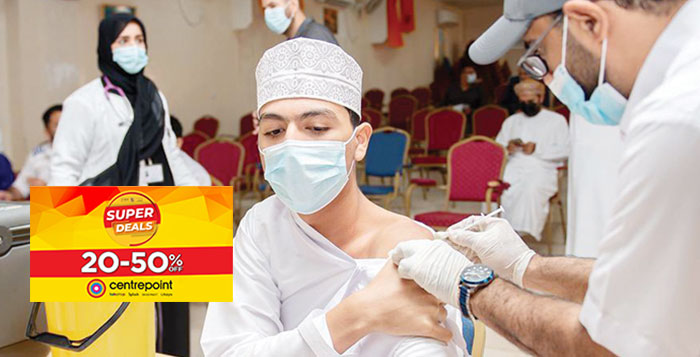
Muscat: A campaign to provide the COVID-19 vaccine to more than 75,000 students studying for their General Education Diploma (GED), at both private and government-run schools in Oman is underway.
The vaccination drive, which will see 75,725 students vaccinated, began on May 26, 2021, and will run for two weeks, under the instructions of the Supreme Committee to deal with COVID-19.
Students who wish to be vaccinated need to arrive at their school/vaccination centre as they have been instructed, following which they will need to get their temperatures checked.
They are required to wait in classrooms or designated halls for their turn to be vaccinated. During this time, students will be given a vaccination consent form, which they need to fill in accordingly.
Prior to being vaccinated, students will need to undergo a medical check-up by a doctor, who will also take details of their medical history. All of this will be entered into the Tarassud+ database, following which the student will receive their immunisation card which records their COVID vaccination details.
Once administered the vaccine, the student is required to wait on the premises for 10 minutes, to ensure they do not develop any symptoms that call for urgent medical attention.
“Vaccines used are given through an intramuscular injection,” said the Ministry of Health in an advisory.
"They are given as two doses that are separated by a specified period of time. Please comply with the instructions of the vaccination centre when taking the vaccine, and follow-up on updates.”
Schools and public facilities across the country are being used as vaccination centres for students. These include the Sultan Qaboos Youth Compound for Culture and Entertainment in Salalah in the southern Dhofar Governorate, and the Bilad Bani Bu Hassan Girls School for Basic Education in Jalan Bani Bu Hassan in South Al Sharqiyah.
“In a smooth, uninterrupted manner, the Directorate General of Health Services (DGHS) in the Governorate of Muscat continues to receive students under the General and Special Education Diplomas as part of the vaccination programme against COVID-19, at Boushar Sports Complex, Quriyat Health Complex, and centres designation for immunisation services in Wilayat Al Seeb,” said a statement from the health authorities in Muscat.
The ministry was also quick to assuage any concerns people might have over the potential side-effects of vaccines.
“No serious side effects have been recorded, since the national campaign for immunisation against COVID-19 began in Oman,” explained MoH. “The recorded side effects of vaccines were limited to pain at the injection site, redness or swelling, fever, headache, nausea, joint pain and general fatigue.
“The presence of these symptoms is evidence that the body’s immune system has begun to respond to a vaccine,” added the ministry.
“These symptoms may often vary on the vaccine used and reactions to them by different bodies, but they often go away within three days of taking the doses of the vaccine.”
People who do turn up to be vaccinated are requested to follow the vaccine guidelines issued by the relevant vaccine centre, with the ministry also urging everyone to be inoculated against COVID-19 as soon as they are eligible. “The importance of taking the COVID-19 vaccine is that it will reduce the burden of infection among communities, reduce the number of admissions in intensive care, and reduce the pressure on the healthcare sector,” explained the Ministry of Health.
“It will gradually lead to a reduction in current measures, including physical distancing, closure of activities, travel restrictions and other preventive measures, in preparation for the return of life to normal, and recovery from the impacts of the pandemic across the various aspects of our life,” the Ministry added.